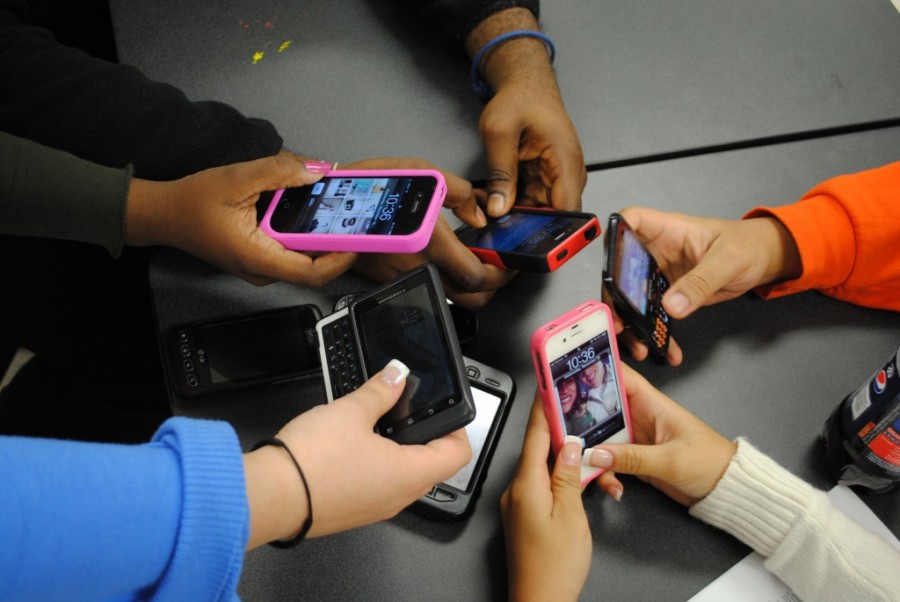Parties and social gatherings no longer excite me the same way they once did. This does not stem from a lack of desire to socialize, trust me; that is the farthest thing from it. Simply put, this change of heart is due to this generation’s new top priority: the smartphone. Not only is the smartphone negatively affecting our desire to interact face-to-face but it is also regressing society’s ability to communicate overall.
At parties, I see more people on their smartphones than I see people drinking or smoking. Although many feel smartphones are a healthier alternative to these harmful substances, this technology has proven to be far more detrimental. According to a recent International Data Corporation study, well over half of all Americans have a smartphone and reach for it the moment they wake up,keeping it in hand all day. In addition, too much of society is using smartphones while driving and as a result getting into fatal car crashes. Whether you are text messaging or changing the song on your playlist, the smartphone’s seemingly innocent functions have devastating results. According to GuardChild, 52 percent of 16-year-old and 17-year-old drivers confess to making and answering cell phone calls on the road, and 34 percent of teens also admit to texting while driving. Teens themselves also confirm that text messaging is their number one driving distraction. With this statistic in mind, teenagers, and even adults, are constantly putting themselves and others in danger when they decide to take their eyes off the road. Sending a message can easily wait until you arrive at your destination. People’s attachment to their smartphones becomes a higher priority than the lives of themselves and others.
As drivers dismiss the importance of focusing while on the road, many people also fail to recognize the significance of human interaction. Relying on your smartphone’s applications, such as Facebook or Instagram, to make friends does not give you the same advantage as being able to make new friendships in the real world. Communicating behind the screen of a smartphone is not a legitimate way to determine if you have quality social skills. Regardless of popular belief, the amount of “likes” you receive on your Instagram picture does not accurately reflect how many people like you or your popularity among your peers. Engaging in face-to-face conversations will give you much stronger communication skills in the long run.
“I feel my iPhone distracts on a daily basis,” said senior Payton Koch. “I admit that even when I’m with my friends I am pointlessly checking social media sites instead of communicating with others on a more personal level.”
Rather than spending countless hours on social media sites, interacting with your friends in person is a healthier form of communication. Mark Glasser from the Public Broadcasting Station states that the unspoken subtext of checking text messages in the presence of a friend sends a message to that friend: the person I am texting is more important than you. Although most do not check text messages in an effort to undermine their friends, this is the impression you are making.
Despite the fact that I am not yet a victim of the smartphone epidemic, people who are constantly absorbed in their these devices surround me on a daily basis. Because many people risk their lives and the lives of people around them just to send a text or mindlessly check their notifications, smartphones are in many ways more dangerous to people than illegal substances. The quality of this technology is de-advancing societal achievements and undermining the value of communication. With society’s new smartphone obsession, we are teaching younger generations that communicating solely behind the comfort of a screen is how society progresses. However, this is not the case. We must learn to use our smartphones in moderation, for excessive interactions with smartphones is already leading to society’s downfall.








